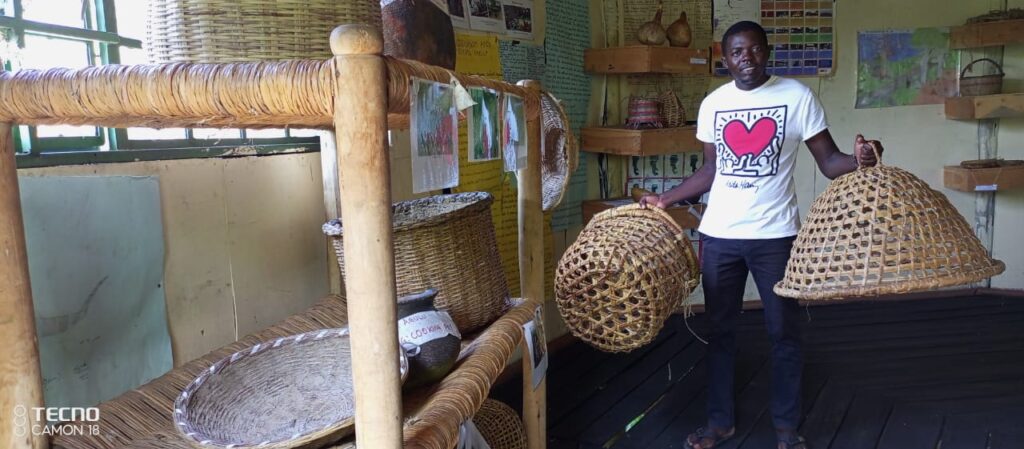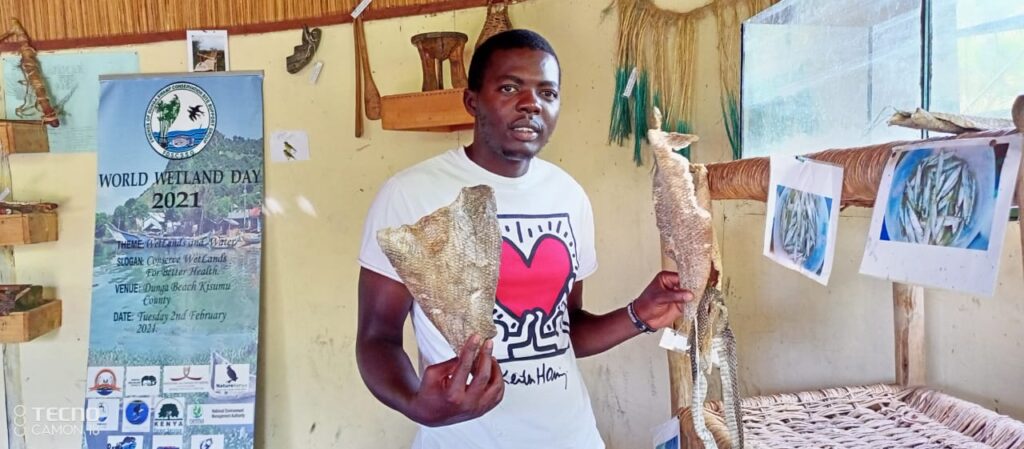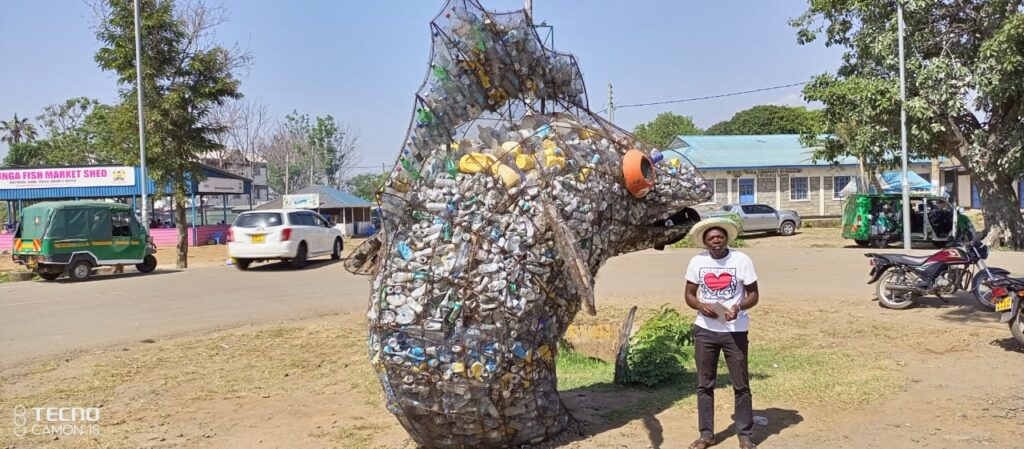Due to his love for environment, Victor Didi had to pursue a degree in Environmental Hydrology at the University of Eldoret, graduating in 2021.
Didi is the Chairman of the Environmental Committee of Dunga Ecotourism Environmental Group (DEEG), a group of 30 young men promoting conservation of Lake Victoria Wetlands along the Dunga Beach shores.
When Lake Region Bulletin visited the wetland, Didi was in the company of four members of the group at their mini museum, doing their daily round of activities.
The love for environment started when Didi was a primary school pupil.
“I used to be an environmentalist in school, and at some point I was the environmental prefect,” he said.
This made him interact with a number of people working on environmental conservation, and he was soon a member of the DEEG.
“DEEG was registered in 2003, and during my time in school, I used to work closely with them due to my love for the environment, but I came to join them in 2016,” he said.
When he joined, Didi was in school. Engaging in activities geared towards conserving and protecting the wetlands made him develop desire to know more about environment.
This contributed to his taking a course in Environmental Hydrology, broadening his scope of engagement on matters conservation.
Today he chairs the Environmental Committee of the group which has other sister departments, all focusing on making Lake Victoria a better ecosystem.

How do they conserve the lake?
According to Didi, in the beginning, they used to confront people clearing the reeds and the plants along the lake shores.
“Many people were cutting down the plants to create space for farming, while others were taking the plans for cooking in their homes,” said Didi.
This saw a huge part of the wetland left bare, hence exposing the lake to siltation, and other forms of pollution, as well as threatening the aquatic life.
“We have had reports of hippos and crocodiles coming out of the lake into the homes, and many people would blame the animals, and forgetting that their actions were to blame for the invasions by the animals,” he said.
Didi and the team then formed networks with law enforcers such as chiefs, environmental authorities, and government agencies in charge of wild life.
“Any time we see someone burning or cutting down trees and plants along the shores, we would inform the authorities and they could be arrested. But we spent a lot of time and resources moving around the villages within the shores to explain to them why they needed to protect the shores, and how to do it,” he added.

The mini museum
Through the support of well-wishers, the team has managed to construct a mini museum, where tourists visit, and they raise money which they use to fund their projects.
Some of the activities available there include bird watching, having a view of the lake and the wetlands, as well as provision of quiet environment to relax against the cool breeze from the lake.
“This is what we refer to ecotourism and environmental conservation. We teach people who come here on how to conserve environment too, and give them some tree seedlings,” he said.
He added: “We also do tree planting, especially within the lakefront.”
Every first Monday of the month, the group converge to do cleaning of the lake shores, especially the beach front.
They also do school outreaches on environmental programs, as well as monitoring the species of birds, so as to identify any new species or if any of the existing species have disappeared.

Reprieve from swelling waters of the lake
According to the group, the Dunga Wetland which stretches all the way from Namthoi to Dunga Beach is home to over 300 bird species.
“If we do not do anything, these birds species may be extinct, yet they have their part to play in our lives,” he said.
He however notes that the recent swelling of the lake waters has worked well for them, as the lake has since reclaimed part of the wetlands which had been grabbed by people.
But he points out that this should be a lesson to residents to always respect nature if they want to make good use of it.
At their mini museum, the group displays a number of artifacts, mostly made from plants and products of animals from the lake ecosystem.
From ropes made from water hyacinth, to baskets and seats made from reeds, Didi says there is more which can come from the lake if it is well protected.
“This basket is made from reeds, and this is a fish skin. If we take care of the lake, we can systematically get some of these raw material from the lake and make these products without diminishing the lake,” he says.
